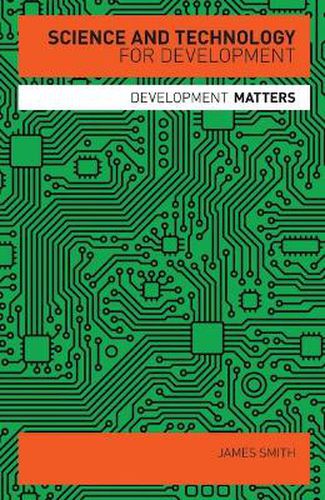Readings Newsletter
Become a Readings Member to make your shopping experience even easier.
Sign in or sign up for free!
You’re not far away from qualifying for FREE standard shipping within Australia
You’ve qualified for FREE standard shipping within Australia
The cart is loading…






How can science realize its potential and help us tackle global inequality, environmental change and crippling poverty? How can more appropriate technologies be developed for those most in need? Science has long promised much – new crops, new medicines, new sources of energy, new means of communication – but the potential of new technologies has frequently bypassed the poorest people and the poorest countries.
In Science and Technology for Development, James Smith explores the complex relationship between society and technology, and the potential for science to make sustainable contributions to global development. Drawing on case studies from Africa, Latin America and Asia, the author argues that we need to think carefully about science and development, otherwise the perpetual promise of future technological breakthroughs may simply work to distance meaningful development from the present.
This book is essential reading for all students of development.
$9.00 standard shipping within Australia
FREE standard shipping within Australia for orders over $100.00
Express & International shipping calculated at checkout
How can science realize its potential and help us tackle global inequality, environmental change and crippling poverty? How can more appropriate technologies be developed for those most in need? Science has long promised much – new crops, new medicines, new sources of energy, new means of communication – but the potential of new technologies has frequently bypassed the poorest people and the poorest countries.
In Science and Technology for Development, James Smith explores the complex relationship between society and technology, and the potential for science to make sustainable contributions to global development. Drawing on case studies from Africa, Latin America and Asia, the author argues that we need to think carefully about science and development, otherwise the perpetual promise of future technological breakthroughs may simply work to distance meaningful development from the present.
This book is essential reading for all students of development.